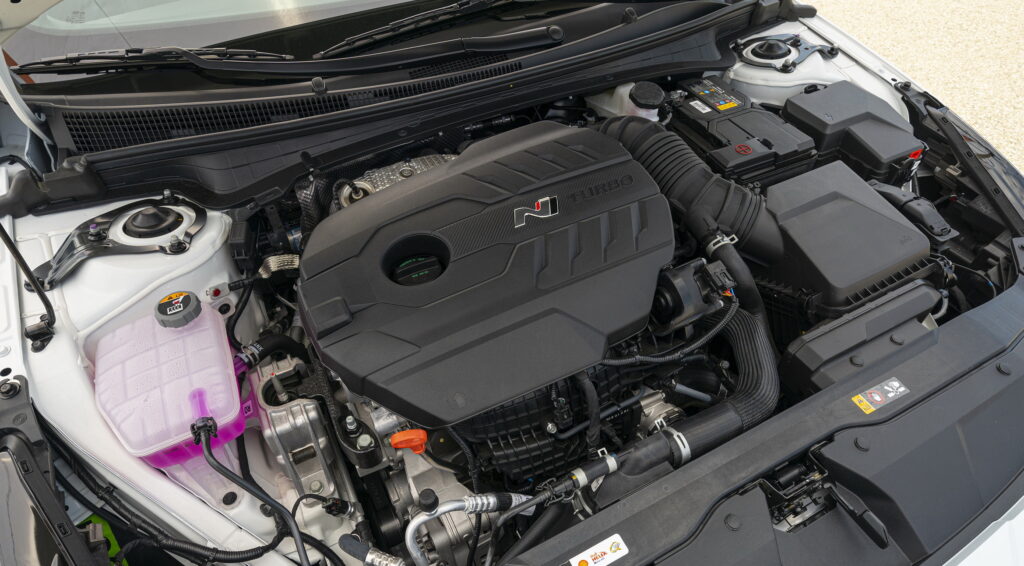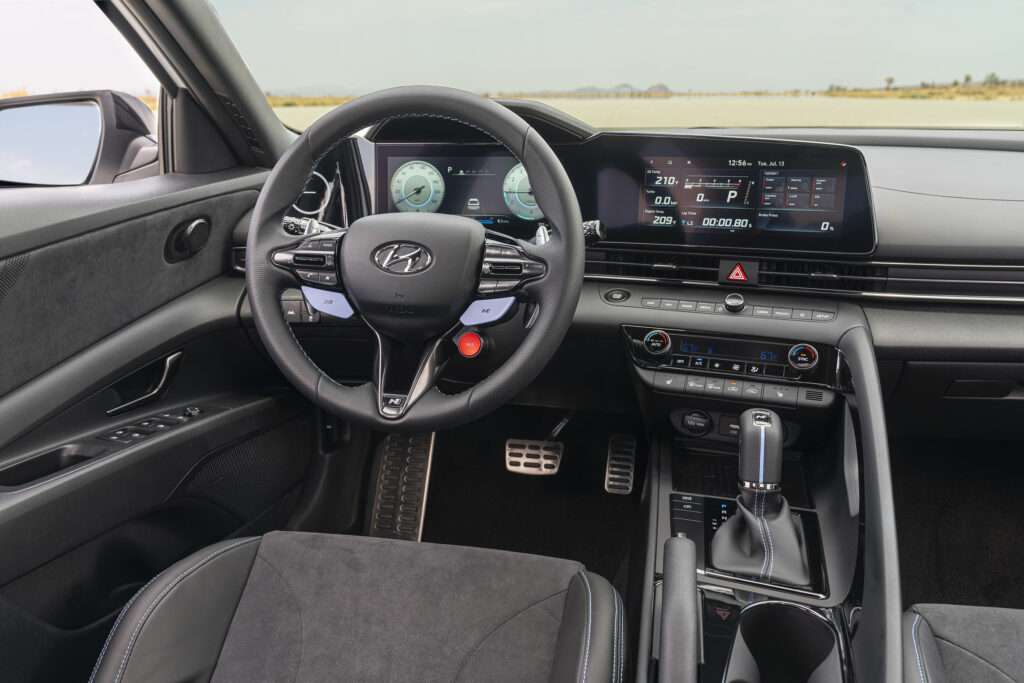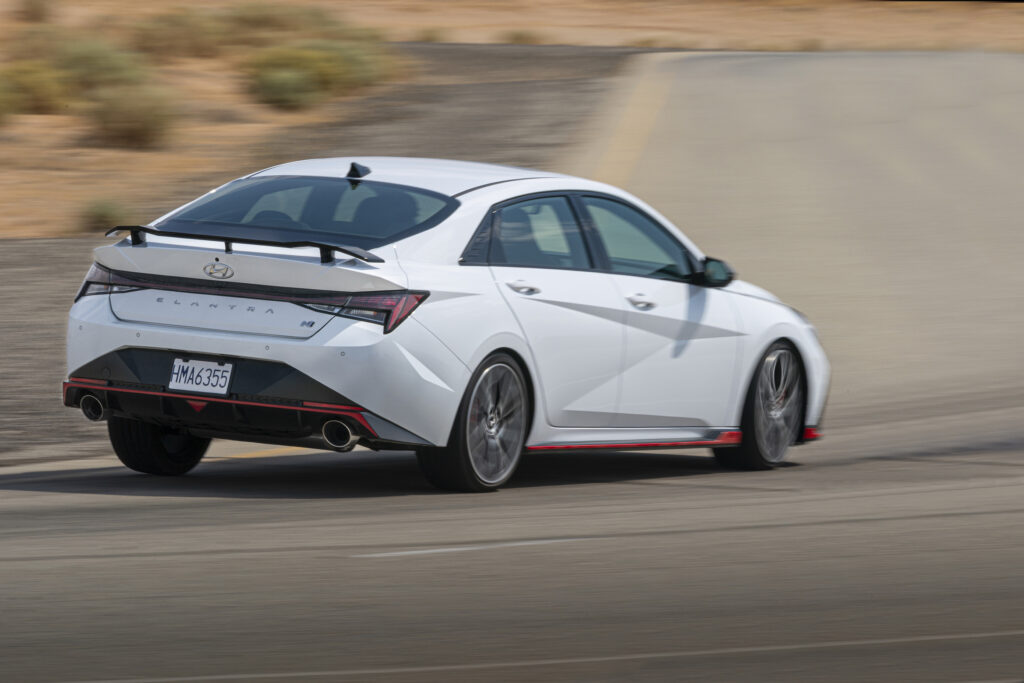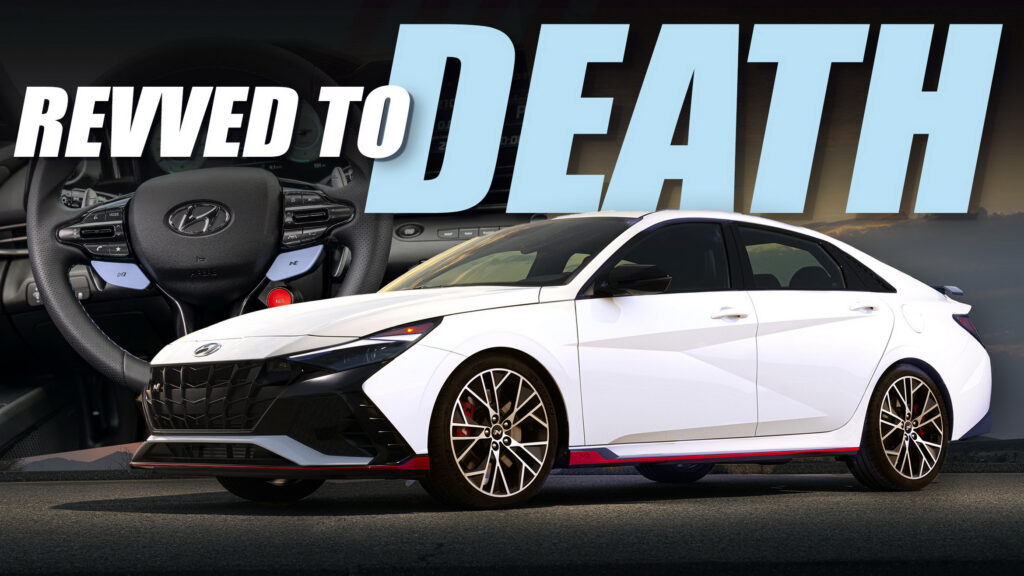- Hyundai recently rejected a warranty claim for a Canadian man with a blown engine in his Elantra N.
- The owner maintains that the vehicle was stock while Hyundai claims he over-revved it.
- The automaker discovered this information by accessing data from the owner’s ECU.
Warranty coverage can be a fickle mistress. One moment, it’s saving a customer tens of thousands of dollars, as is the case for Toyota Tundra customers. In other instances, it pays out nothing when the automaker believes the owner did something to cause the damage. This story features the latter scenario, where Hyundai claims an owner killed his own engine and tried to put them on the hook for it.
A sudden engine failure
Christian Matzoros of Ontario, Canada, owns the 2022 Elantra N at the center of the dispute. Despite the performance sedan still being under warranty, Hyundai has refused to cover the repairs, claiming Matzoros had been “over-revving” the engine.
Review: 2024 Hyundai i30 N Sedan Perfects Price-Performance Ratio
In June of this year, while he was driving home, his car’s 2.0-liter turbocharged four engine failed at 46,000 kilometers or about 28,580 miles. “It just stopped. I was stepping on the gas pedal and it wasn’t moving,” Matzoros told Canada’s CTV News. The estimated repair bill? A hefty CA$10,000 (around US$7,400) plus tax.
As we discovered, before contacting the media, he had reached out to a Hyundai N owners group on Facebook for help on June 3. “Does anyone work at a Hyundai dealership and can warranty my Elantra N motor no problem [sic] they are giving me hard time I was a former employee. Ontario Canada (let’s work something out), ” he wrote in a posting.
Commenters asked him for more information about the car, but all he’d openly say is that it was stock and that the dealer wasn’t willing to give him a new engine. This surprised him because the vehicle was still under warranty when the engine failed.
Hyundai’s evidence of over-revving

Apparently, the Elantra N sat at the dealer for three months while he tried to work out a deal with Hyundai to get the coverage he believed he had. Unfortunately for him, Hyundai believes it has evidence that he’s fully responsible for the damage. The explanation the automaker provided for denying the warranty appears quite damning.
“After reviewing the vehicle’s engine data, which was retrieved through the Engine Control Unit (ECU) – a system that monitors and records engine performance for diagnostic purposes – it was determined the engine experienced conditions exceeding its designed operational limits, resulting in significant mechanical failure,” a Hyundai Canada spokesman told CTV News. “These findings point to excessive engine revving, which falls outside the coverage of the vehicle’s warranty due to improper use.”
More: Genesis Dealer’s Catastrophic Oil Change, Botched Fix Pushes Infuriated Owner To Lexus
The spokesman further clarified, “The warranty for Hyundai vehicles covers defects in materials and workmanship under normal usage conditions. Damage caused by misuse, including exceeding the vehicle’s mechanical limits, is not covered. In this instance, the excessive stress caused by significantly exceeding the maximum recommended RPMs on multiple occasions falls outside the warranty parameters. We have provided a full explanation to Mr. Matzoros regarding the cause of the issue and the reasons for this decision.”
Potential “Money Shift” error?

If the engine failed because Matzoros frequently hit the rev limiter using the throttle, that would be a different story. However, based on Hyundai’s wording—“significantly exceeding the maximum recommended RPMs”—this doesn’t appear to be the case.
While Hyundai doesn’t explicitly state it, the fact that you typically can’t over-rev the engine just by pressing the throttle suggests this could be a case of ‘money shifting.’ This happens when a driver attempts to shift into a higher gear (like fifth) but mistakenly selects a much lower one (like third), causing the engine’s RPMs to spike far beyond their limits. This can—and often does—result in catastrophic engine failure, though not always.
More: New Toyota GR Corolla Owner Money Shifts His Way To $42k Repair Bill, Warranty Denied
Matzoros, who had purchased an extended warranty for seven years or 140,000 kilometers (87,000 miles), says he specifically chose the Elantra N because it’s built for performance driving. “It’s their track model and it is designed for the track and track use. It has a two-liter turbo engine and it’s equipped with a six speed manual transmission,” he explained.
“The car has been to the track, but that is not when this incident occurred. I was driving home when it blew up,” said Matzoros.
Who owns the data?
Other automakers, like Toyota , have also denied warranty coverage in similar cases, attributing the failure to driver error. At the same time, it’s worth noting that the automaker only has the information about “over-revving” because it gained access to the data within the ECU. Some believe that such data should be the sole property of the owner.
“I want Hyundai to cover this motor, especially because I did purchase the extended warranty and $10,000 is a lot of money,” said Matzoros. Regardless of what happens next for him, the lesson to the rest of us is clear, avoid picking the wrong gear.





